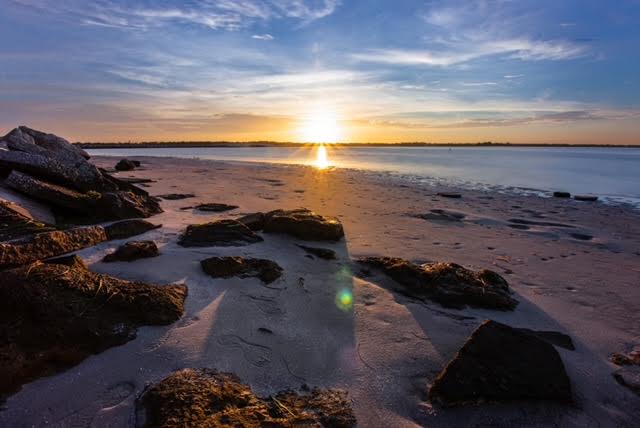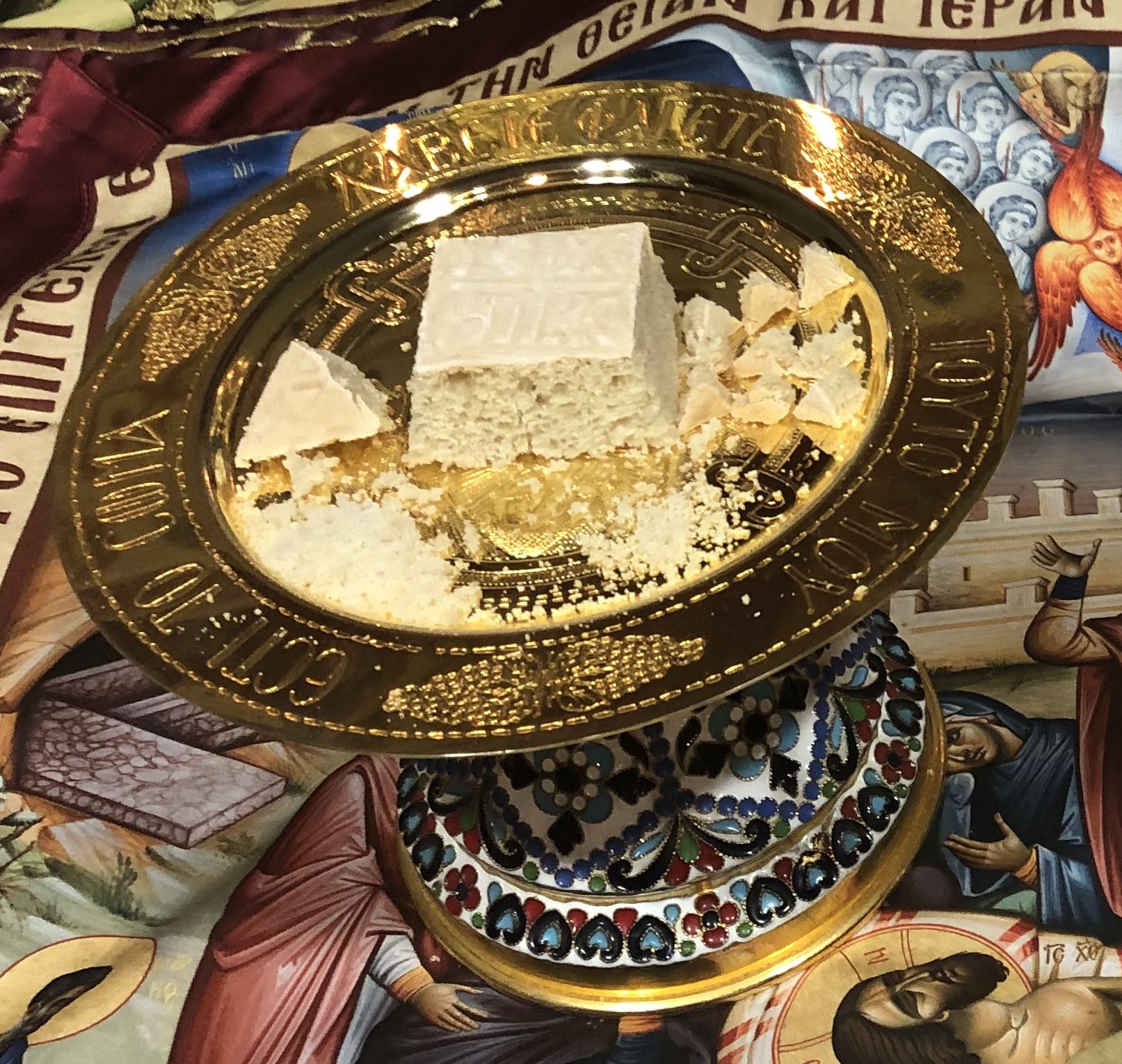And the Lord said to Satan, “Have you considered my servant Job, that there is none like him on the earth, a blameless and upright man, who fears God and turns away from evil?” Then Satan answered the Lord, “Does Job fear God for nought? Hast Thou not put a hedge about him and his house and all that he has, on every side? Thou hast blessed the work of his hands, and his possessions have increased in the land. But put forth Thy hand now, and touch all that he has, and he will curse thee to Thy face.” And the Lord said to Satan, “Behold, all that he has is in your power; only upon himself do not put forth your hand.” So Satan went forth from the presence of the Lord.
Job 1:8-12
Of all the reflections in this unit, this is the hardest one to write. We know that we are all going to die at some point. Most of us hope that we and our loved ones will live to be old. Many people who are old hope for a quick and painless death. Dying in one’s sleep is usually seen by old people as a good way to go, even though it is sudden. The people who will be left behind probably prefer something that isn’t sudden, where there is a chance to say goodbye or to save one last something.
But what about when death comes suddenly, or even tragically, to someone who is young? We’re not talking about someone who has made a bad choice. We’re talking about the otherwise healthy person who has a sudden and fatal medical episode. Or the hard-working person who is killed in a car wreck on the way to work. Or the dedicated parent who dies in a freak accident, like slipping on a wet floor and hitting their head. I’ve known people who are peak athletes who have died in their 30s and 40s, people who exercised every day and who were extremely health-conscious about eating. And I know people who are in their 70s and 80s who have abused their bodies, eating wrong, never exercising and somehow are still going. We’ve probably all had the experience of a close call in the car—a second earlier or later, we would have gotten in a crash or maybe even killed. Why were we a split second early or late and someone else was “on time” and got killed in a car wreck?
There is an intentional will of God. I believe that God is intentional about many things—like I believe He called me to be a priest, that was intentional.
There is also a permissive will of God. I don’t believe that God intends for bad things to happen to people. However, He does permit them. Why? This has to do with free will. For instance, if I’m talking to someone, I have a choice to treat them kindly, or treat them unkindly. Let’s say that I want to hit a person I am talking to. My physical ability to swing my arm at someone should allow for that to happen. If I swing my arm at someone and God stops my arm from doing what it should be able to do, that would be a miracle. God would stop a “law of nature,” and do something extraordinary. If every time I go to swing my arm at someone, God stops me from being unkind, then He’s taken away my free will. I can no longer choose between being kind and unkind. And God is not going to take away our free will. At least most of the time.
The question for which there is no satisfactory answer (at least one that I’ve discovered) is why does God make a miracle in some instances and not in others? Why does God not permit certain things from happening, but in other cases He allows them? I do not have an answer for these.
I’ve had to bury several children who died and were only days or months old. Why did God bring them into the world if they were only going to live a short time? Why did a mother get pregnant at all if her baby was destined to only live a few hours or days? Again, there is no answer to these questions. James 1:17 says “Every good endowment and every perfect gift is from above, coming down from the Father of lights.” If every good and perfect gift is from God, it would stand to reason that the opposite would also hold true—if it is not good, it is not from God. For instance, a headache is not good. If I have a headache, the source could be me—I didn’t sleep enough, or I’m not hydrated. The source could be someone else—someone hit me in the head. The source could be the fallen nature—too much sun. Or the source could be the “equal sharer in an imperfect nature” that I referenced before—the fallen world and its polluted air, water, and gene pools will get each of us in some way.
There are four questions I have reflected on each time I’ve ministered to people affected by tragedy. The first is “Why?” And the answer is, our bad choice, someone else’s bad choice, a disaster of nature, equal sharers of an imperfect nature, and sometimes the answer is there is no answer.
The second question is “What if?” This is where people second-guess decisions, fundamental ones like “Why did we have children?” or “Why did I do this or not do this?” The answer to this question is “’What if’ is a bad question and don’t ask it.” What if’s will drive us crazy, make us feel guilty, and won’t let us move on. “What if” is a natural question but it is not really worth asking.
The third question is “Where is God?” People wonder where God was on 9/11. Why didn’t God take over those planes from those terrorists? Why did God permit that? The simple answer is that bad people did a bad thing that day and God doesn’t stop people from doing bad things (most of the time) because He gave us free will and free will can be used for destruction. God is in the good. If it is not good, it is not from God. There were many stories of heroism from that day, and God was in every one of them. There have been good things that have come out of 9/11 and God has been in every one of them. Again, I write this with humility. No one in my family was killed or hurt on 9/11. I felt pain that day as an American, not as a close victim.
The fourth question is “What now?” I was going through a rough time when I was 19 years-old, and would ask myself, “why do bad things keep happening to me?” I needed some serious surgery on my right elbow from a sports injury that effectively ended my playing competitive sports. Now many decades past that, I realize that that was just a blip on my life, a tough time that I was able to get through but back then, it was like my whole world was falling apart. I started to have some self-destructive thoughts (yes, most people have them at some point in life—and thoughts are not a problem unless they are constant, or there is a concern that you’ll move past thoughts and go to self-destructive actions). I knew that I needed some help, so I went and saw my priest, and actually had my first confession at age 19. Our conversation was one of the most impactful conversations of my life. There is one thing that he told me that I have taken to heart since that day. He told me “Don’t be a victim, be a survivor. God doesn’t want victims, He wants survivors.” I have tried to take a survivor mentality into my challenges, that whatever life throws me, I will somehow survive. For those who have dealt with tragedy, that’s the best advice I could give. Find a way to survive. At the end of life, when we are laying on our death bed, the tragedies of life honestly won’t have mattered. What will have mattered is did we find a way to survive them?
Recall the Parable of the Talents, in Matthew 25:14-30—the master entrusted each of his servants a different amount of talents. And he expected a different result from each. From the one who received five, he expected five more. From the one who received two, he expected two more. I believe that from the life that has gone consistently well for a person, God expects more from us. To the life beset by tragedy, God expects survival.
Here are a few helpful hints in supporting people who have suffered tragic losses.
- This is the most important hint—be present, but you don’t have to say much. Rick Warren, the well-known Protestant pastor whose own son died by suicide, is quoted as saying “In deep pain, people don’t need logic, advice, encouragement or even Scripture. They just need you to show up and shut up.” I was encouraged as a young priest to have a “ministry of presence.” Just to be present, and not try to come up with answers, because sometimes there are no answers, and whatever answers there may be, it is not the appropriate time to share them.
- Many people heal at a funeral. The relatives in tragedies need more time to heal. Parents who have lost children may cry the rest of their lives. And it is important that there is a space for their grief, that they don’t feel like the clock is expiring to talk about their child or their loss. Children who have lost parents at a young age also might need to grieve years later. For instance, a child who loses their parent when they are five, may grieve a little bit at graduation, or at a wedding, at a life event when a parent is particularly missed. And they need to be allowed to do that.
This reflection was not an attempt to provide neat, tidy answers for life’s tragedies. These are thoughts that I have had over the years of dealing with tragedies, and they are how I make sense of it. I have tried to be very sensitive in cases of tragic death, and the first recourse is always just to be present, the time for talking and attempts at answers comes much later.
The Lord is my portion; I promise to keep Thy words. I entreat Thy favor with all my heart; be gracious to me according to Thy promise. When I think of Thy ways, I turn my feet to Thy testimonies; I hasten and do not delay to keep Thy commandments. Though the cords of the wicked ensnare me, I do not forget Thy law. At midnight I rise to praise Thee, because of Thy righteous ordinances. I am a companion of all who fear Thee, of those who keep Thy precepts. The earth, O Lord is full of Thy steadfast love; teach me Thy statutes! Psalm 119:57-64
When tragedy happens to you, focus on being a survivor, not a victim. When tragedy happens to someone else, be present and don’t try to have any answers.

